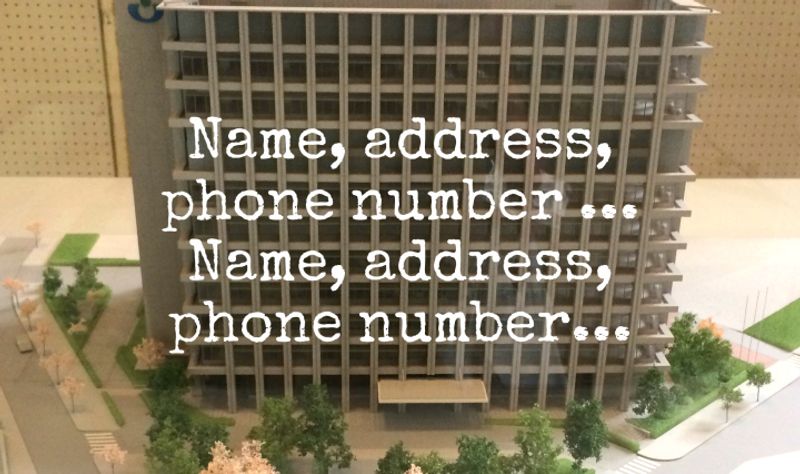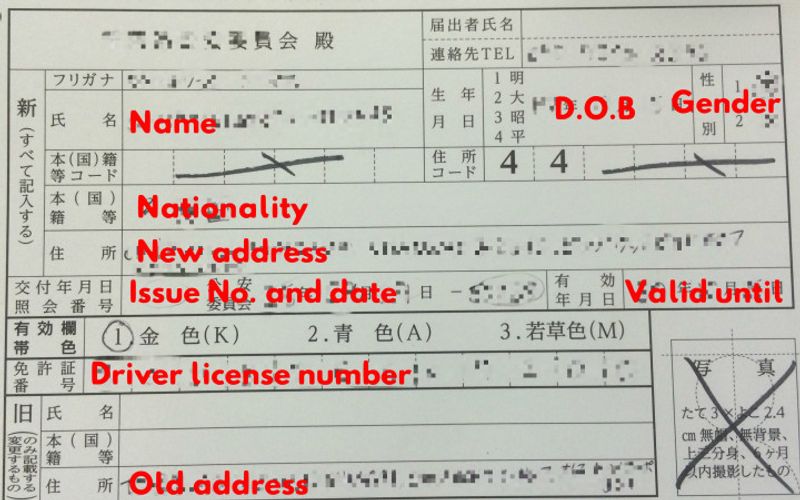Apr 16, 2016
Moving House in Japan: What you need to do after the move.

In a previous post I wrote about my experience of moving house/apartment in Japan using a removal service. (Moving House In Japan: The Removal Service)
The saga of moving doesn't end there. In Japan, post move, there's a whole bunch of paperwork that needs to be done in order to make everything official. Most of this paperwork needs to be completed within 14 days of having moved.
Visit City Office and Update the Registration Card (在留カード)
This needs to be done at your new city office / 市役所 / shiyakusho. It's worth making a special mention that there's no need to go to immigration post move. I've seen quite a few questions about this on various forums.
In my experience, city offices are located in the back end of nowhere, so step one is finding the damn things. Step 2 is then filling out the right forms. At reception I said something along the lines of, 最近引っ越したので住所変更の手続きをしに来ました / Saikin hikkoshishita node jyusho henko no tetsuzuki wo shini kimashita / "I moved recently and have come to do my ‘change of address’ paperwork.". I was then passed over to an 'official' and given a form to fill out. A jyumin idou todoke / 住民異動届. Luckily, another official was assigned to me who quickly realised that this was all going to be a lot smoother and easier for everyone concerned if they just filled the form out for me. Here is said form. As you can see, some of the field headings are written in English. Actually, this form is for all new 'householders' to fill out, foreign or national.

Next up, it was over to the counter, pick a number, and wait to be called, after which the new address was printed on the back of my Registration Card (10 mins). The partner had also instructed me to get a couple of jyumin hyou / 住民票 (a kind family registration certificate that’s needed for various bureaucratic affairs in Japan). These cost 300 yen apiece, and because it was a busy day, as I suspect every day is at a city office, (Why not open on the weekends? he implores) they took about 50 mins to produce.
Change the address for your kokumin nenkin / 国民年金 (pension)
If both you and your employer are doing things by the book, chances are you should be paying into a state pension. You need to inform your change of address to these people, too. This was done in the same building (different section) and simply involved handing over a bit of paper that was given to me by the previous official. I'd brought along my 'pension book' but it wasn't needed. This took about 5 mins, and I didn't have to write anything.
Change the address on your driver's license
Next stop is the police station. Not your local koban (police box) but the actual HQ for your city. Bring current license and updated Registration Card. This was all. I didn't need my passport, mug shot, or a jyumin hyou. Into the police station, and say something along the lines of, jyusho henkou / ‘address change’ to whoever will listen. I was given this form to fill out.

It was a tricky one, but the officer in charge (just about) guided me through it. There was almost almost no queueing time, and again, it took about 10 mins for them to print my new address on the back of the license.
Tell the post office you're in town
A couple of things to address here; one is to inform them that this is now where you live (so as you can receive post), although you really should have done this at the post office local to your previous residence. The other reason is because I have a Post Office bank account (Yea, I'm high roller dawg! You laugh, but all those rich scumbags caught up in the Panama Papers scandal are wishing right now they'd gone with the unassuming P.O.!!). Another form (simple stuff; name, address, phone number), the Registration Card and my bankbook. This was the only place that attempted to conduct things in English for my benefit. It was heartbreaking! Still, it only took about 15 mins.
Notes
At the city office I was asked on a number of occasions if I was on ... drugs! No, just kidding. I was asked if I was on kokumin kenkou hoken / 国民健康保険 (national health Iinsurance). I am, of sorts, but it's done through the partner’s employer, so as it turns out there was nothing I needed to do in regards to this, but I dare say it'll require more form filling if not.
For people on shakai hoken / 社会保険 (national insurance organised through the employer), I don’t know what a change of address involves, if anything.
I've moved a couple of times without having informed the post office (in regards to my bank account with them). It'd never been a problem, but this time the partner insisted.
Japan's mountain of bureaucracy is annoying on very dangerous levels, but you 'should play the game' (in my opinion). It may be a staggering pain in the rear, and it may require crushingly unfortunate use of a day off work (and it will require the best part of a day to get the above done), but it's probably for the best in the long run. If, indeed, you are here for the long run.



2 Comments
KpQuePasa
on Apr 21
It took me half a day to register my dog with our local ward. I suspect it's because they were trying to find someone to speak English with me, though the process seemed to be no more complicated than stamping his import paperwork (which was all in Japanese) and giving me a dog tag... once someone was brave enough to deal with me it took all of 5 minutes. I'm pretty sure even fresh off the plane here a year ago I could have managed the vocabulary, but I appreciate the effort and care they took to be so accommodating. I wonder if you did any neighborhood introductions when you moved - I would love to hear about the process if you did... I fear our neighbors still hate us because we did not follow (or know about) proper Japanese protocol there.
KamaT
on Apr 21
@KpQuePasa This is a good point. I asked around about this and was told to do this with the people next door (we're in an apartment building here) and maybe below (especially if you have kids). Also, the owner of the building lives in ... the same building, so that was a must. Gave them some cookies or something. We bumped into the people next door as we were moving in and the partner decided that was enough (although we had bought coffee but didn't actually give it to them). We paid a visit to the people below but they weren't in, and we haven't been back since. In our old place, where the walls were much thinner, the only person that introduced themselves to us was an elderly gentleman who moved in next door. He gave us a 3000yen gift card for convenience stores. The partner felt this was overly generous. That's about all I know. I get the impression it isn't as important over here as it is back home, but I may be wrong.